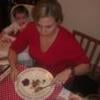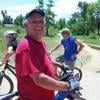Search the Community
Showing results for 'alcohol'.
Found 17,501 results
-


Can I take Zzz Quil?
MamaTo3inNH replied to Crystal88's topic in POST-Operation Weight Loss Surgery Q&A
Liquid zzzzzquil also has alcohol in it, I would recommend just buying plain old Benadryl and taking 3 about an hour before you want to fall asleep. Much cheaper, nothing unnecessary (alcohol or sugar) and just as effective. -
im 3 months banded and i can eat EVERYTHING, just slowly and chew well. since ive been banded ive had pizza, steak, pork chops etc. while i dont care for 99 % of alcohol, tonight im having a strawberry margarita in celebration of losing my 1st 25 lbs ! (Woo hoo! i hit 200 today !) so remember, you are in the early STAGE of being banded," and this too shall pass." good luck !
-
Hi All, I rarely come on the forums anymore. It seems that, once I got past the really tough times with my band to sleeve revision I just drifted away. Anyway, I realized that I will be 2 years post-revision in a couple of weeks and I should probably report in and let the newbies know about my experience. If you want to know specifics about my surgery, you can look through my profile posts - it is hard for me to remember all the details now. I had a lap band for 4 years and it sucked. I got my lap band at 215 pounds and ended up at about 195 pounds and was gaining slowly on top of that. I couldn't eat chicken (did I mention the band SUCKED?). I wanted the band out, but I was afraid I would baloon up higher than ever. For me, the sleeve was an insurance policy. I did not expect it to work because I had already been through weight loss surgery that did not work. Why would I expect anything different the second time around? I was 100% afraid to dream that it might be successful. And, of course, I was wrong The sleeve was everything the band promised and more. On surgery day I was somewhere between 195 and 200. I went to Dr Aceves and would recommend him without hesitation. Band out and sleeve in, took less than 90 minutes. No complications. Good pain management. That's when the tough stuff really started. I couldn't drink the Protein drinks because I couldn't handle the smell or taste. Because of this I barely ate or drank anything for weeks. Everything tasted so weird / bad. I was significantly fatigued for 3 months because could barely get any food in. I chewed my Vitamins and took my omeprazole like a good girl. The apex of my weight loss occured after about 9 months. I got down to about 127 pounds. Mind you, at no time was I ever "trying" to lose weight. In fact, I was "trying" to get enough quality calories in my body. Since I ate so little, I couldn't mess around with junk food - I only ate food with good nutritional value. I also found that Certain foods were just harder to eat. I craved chicken, but I had a hard time eating carrots (they stick!). I would say I didn't feel completely normal until about a year had passed. At this point I have levelled out in the 135-140 range and I am thrilled about it. It is easy for me to get down to 135 (and lower if I wanted to) by just cutting out one snack a day or quitting drinking alcohol altogether. I weigh myself maybe once a month and if I see myself creep towards 138-139, I start cutting out a couple of things and get back to my comfort zone. It has been hard in the last 6 months because my father committed suicide leaving me with a contentious legal battle with his wife. I started drinking a couple of drinks every day because of the stress. That has kept me in the upper end of my range, but it is still easy to maintain. I find as time goes by, I stopped drinking every day and only a couple of times a week - it made me less puffy :-) So, my lifestyle now: I don't exercise. Yes, I know - that's bad. I do have tons more energy and I walk more in my daily life than I ever did before, but I do not engage in regular exercise. I try. I do my best. I'm just being honest. I still have a hard time getting even 30 ounces of Fluid every day. The taste of Water changed for me the day I had surgery and I have had a terrible time replacing it. Sometimes I have fizzy water. Strangely, beer goes down very easily. I developed a Starbucks mocha habit after the first year, but I limit it to one a day and get nonfat most of the time. I also started drinking iced coffee. I eat 5-6 times a day (I limit it to 5 if I am actively trying to manage my weight). I eat protein and veggies. I just started liking sandwiches again, but find bread and rice both expand in my stomach and make me very uncomfortable after I eat them. Even now, I eat too fast sometimes and can be in terrible pain from fullness. I still can't drink after I eat. I drink as much as possible up to the point where I put food in my mouth and then no liquids for an hour or more - PAINFUL!! I could never have done this without the sleeve. I am completely happy with the result. My life isn't "normal" because I still have to think about carrying Snacks with me so I can have good choices while I am out of the house. I still have to eat slowly. I still have people in restaurants badgering me about why I didn't finish my food. The difference is that I wear size 8 jeans and size 4/6 dress. I can walk / run around Disneyland for 10 hours with my daughter without major breaks to sit down. I rode a bike with my kid just this week and it was awesome. I finally feel like I fit in with my world. The outside reflects the inside. I feel much happier now, also, because people are used to me being this size now. Before people were always making a big deal out of the wieght loss. I don't like talking about it. I hated the attention during the loss because I was very guarded about the surgery. Now I have been the same for a year and a half or so, people don't comment about it as much and I love it. My future: well, the biggest surprise for me is that my husband and I are thinking about having another baby. My daughter is 8 and I had my tubes tied 6 years ago. I scheduled my tubal reversal with a specialist in Beverly Hills at the end of March. I will be 39 in a couple of weeks, but the doc says my FSH level is that of a 25 year old and my husbands sperm count and motility is off the charts! I used to be super-fertile before my tubal (just look at me sideways, and I was knocked up!) so we will see if that is still the case in a couple of months. Also, I finally finished my Bachelors degree 21 years after I started :-) I graduate in June. My life rocks! I was already lucky to have a good man, a great child, good job, and overall good health. The sleeve and weight loss are the icing on the cake for me. I'm a lucky lady. With gratitude, Lara
-
As some of you know I'm 47 and divorced, will soon be 2 years this month. Let me start how my weight gain all started for me, I wasn't an obese child nor a teen. I married my high school sweetheart in 1986 and boy did I think I knew the world, if I knew then what I know now, ha. He was shy and I was the outgoing one, he was super skinny and I was average. He ate and ate and ate and I thought I could eat along with him so my weight kept creeping up over the years of our marriage little by little. By 1990 I weighed 199, said to myself I'd never let myself weigh over 200, I ate crow alright. We were unable to have children so we occupied ourselves in the life of luxury of world travels and cars and later in life our dream home in '06. By that time he had a corporate job, I had not worked in years and we had our dream home with a pool. It was all I could do to keep house it was so huge but I loved it. Guess you could say starting in '06 I could see a change in him and I began to stress eat more. His job was very stressful, afterall he managed a factory, oh how proud of him I was but then the alcohol began and then my food addiction began. From 2006 until he left me Oct '09 I literally watched him become a full blown alcoholic and my eating had well, let's just say I gained about 25 lbs. He began staying out late till the wee hrs of the night/morning in bars, coming home drunk, it was horrible. Then on that fateful afternoon in Oct. '09 he came home and said he was leaving me, I was devastated to say the least. I had no idea he wasn't happy. Yes we had our ups/downs like anyone else but I guess he had gotten tired of looking at a fat wife, I had let myself go, certainly not the girl he married. I stayed in the marital home a few months until I couldn't care for the acreage and pool and he made me move out and he move back in. At this time he had asked for a divorce and I was at my all time low, a deep depression. I guess I have to admit I was on the verge of suicide but I'm deeply religious and knew better and had it not been for my faith in God and my mom and of course my Psychiatrist I never would have made it out of the dark hole. My mom stepped in and bought me a home close to her and I rented it from her. Guess she wanted to give me my independence for the first time in my life. By this time it was May of 2010, divorce proceedings were ongoing, I was living alone and eating and eating. BIG mistake. I had no accountability, I was sitting alone in a house with a dog and a tv and eating whenever and whatever I wanted. I literally was eating myself to death. I knew I didn't want to die an early age like my dad but yet I still kept eating. I had ballooned to 294, I was huge, could hardly walk, couldn't breathe. In early June '12 I moved in with my mom for financial reasons and she sold the house, talk about humbling, having to move back in with a parent at age 47. One afternoon I asked my mom to go with me to a seminar for lap band surgery, this was April 2012. What a revelation. Yes I had done my homework, I had actually gone to a seminar back in '08 but wasn't ready mentally then. This time I was ready. The next day I called my ins, they covered it, called the dr's office made an appt, got right in, from start to finish I was banded in like 4 weeks, his office pushed my ins approval thru really quick. Needless to say this saved my LIFE. Has it been a struggle, yes, I struggle each and every day with head hunger and sweets and sometimes give in, that is why my weight loss is slow but I'm proud of my 68 lbs in 1 year and will never look back. My eating habits have changed, for the better of course, I look at food differently, I taste it now instead of gobbling it down. Had it not been for all of you all on here answering my questions throughout this last year and Jean's book I don't think I could have survived my first year. Thanks to all of you out there you're the best! You guys are family!!! Looking forward to the next 12 months of a happier, healthier new me. Donna
-


Familiar words some of us can relate to- from Robin Williams RIP :(
itsmekarenlee posted a topic in Gastric Bypass Surgery Forums
"During an interview with Good Morning America, Williams explained that falling back into alcohol abuse was "very gradual." "It's the same voice thought that… you're standing at a precipice and you look down, there's a voice and it's a little quiet voice that goes, 'Jump,'" Williams told Diane Sawyer. "The same voice that goes, 'Just one.' … And the idea of just one for someone who has no tolerance for it, that's not the possibility." When asked why he relapsed, Robin answered: "It's [addiction] — not caused by anything, it's just there… It waits. It lays in wait for the time when you think, 'It's fine now, I'm OK.' Then, the next thing you know, it's not OK." Replace "alcohol" with "food". Addiction of any kind is so hard. We just have to go day by day and learn new habits and try not to think of the old. -


Greetings! On pre-op diet...surgery date 3-28-11
Joleen replied to Preemiemom's topic in Tell Your Weight Loss Surgery Story
Hello and Good Luck on your up coming surgery!!! We have a lot in common. Our surgery dates are the same, we read a lot, and of course we have the same fears!!! I asked questions of my psychologist and dietician at Temple, but realize after reading these boards not everyone gets all their questions answered. Regarding pre-op diet. I have followed mine to the "T", the previous post is exactly right about the liver etc. That being said, your mind and body plays tricks on you, so I journal, blog and I play my own version of Survivor. I keep telling my self this is getting my body ready for my "new life". The people I have chosen to tell are supportive, if someone says something negative or says something that sways my motivation "like, how can you only drink shakes?, or how can you only live on bites of food after your surgery?", I explain it to them, but I almost start to feel superior!!!!! I explained this to the psychologist and he said it is normal and that is a tool that would help in my success! I am not going to let people make me feel bad about my choices in life anymore!!!!! I'm done, so I think everyone should surround themselves with a great support system first and foremost and educate themselves and the motivation to succeed will come also! Regarding the post-op. My team has me following a two day clear liquid then two weeks shakes then progression to full, then slowly to healthy eating (I am speeding it up here!!!), it's explained to me simply but when I was stressed out about reading some of the failure rates. If you don't follow the plan EXACTLY, the likely hood of failure greatly increases (that includes, slippage, hernias, increase reflux, ulcerations, pouch expanding, etc). So it is important to learn healthy eating habits with this tool. The first thing they said is to avoid eating and drinking at the same time (your banding will act as a funnel, and flush the food out), drink 1/2 hour prior to and 45 min. after a meal to stay full longer. Eat Protein first, ALWAYS. You will always fill up faster and less bloating. Our neurotransmitters that tell our stomachs that we are full lay at the top of our stomachs so if the band fit in that area food hits those transmitters sends a signal to your brain saying you are full. Of course the trick is getting to the reason of why we have to stuff ourselves! Tips that Temple has gives me to help overcome this are: Like previously posted, chew your food (over chew actually) When we actually chew are food we start sending those signals to the brain that trigger those transmitters telling us that we are starting to get satisifed and in 15 min. we should be full. (that's why it helps to have a small stomach because it takes us longer to eat!!!! pretty cool huh!!! So don't over stuff never ever!!! The no no on eating and drinking together! Keep a food journal, this is a must!!!! I use one on my phone. Myfitnesspal.com It also has a forum great tool!!!! Exercise, we all know why this is important! Small bites, no carbination, preferred no alcohol for at least first 18 mths. No sweet drinks that slide through or ice cream!!! Call MD for anything out of ordinary and keep all appointments. I think these are the important ones that stood out for me, but I know this board can add to this!!!! They are great support. Peace, Joleen -
I too am obese with no co-morbidities YET. Well hopefully their won't be any because on on my way to a healthier thinner me. I know can understand where you are all coming from, I used to eat very healthily, or so I thought, now I realise just how MUCH i was eating! Obesity and healthy don't go together, because being obese we are at much higher risk of heart disease, diabetes, high blood pressure, strokes etc etc. But being skinny isn't synonymous of being healthy. A lot of skinny people can be alcoholics, drug addicts, so that's not healthy either! But I do agree w Emily Grace, we need to be honest with ourselves to be able to address our problems but as mommyoftwo says, obesity is a complicated and multifaceted disease, cause it is one, and it's not as simple as 1+1=2, that's why obesity is such a big problem! Good luck to all of you in your journey!
-


Easy Way Out.....ha!
Icantbelieveit replied to gina171's topic in General Weight Loss Surgery Discussions
Fat = lazy slob Drig and alcohol = poor thing probably had a rough life and needs help. Nobody cares why someone is overweight because you're just lazy. Even with studies showing sugar is even more addicting than some drugs. Sent from my SM-G930P using the BariatricPal App -


Lack of support? Taunted with food?
mrsgriffin2u replied to Melody2006's topic in LAP-BAND Surgery Forums
You definitely are right, however, it doesn't make it much easier. I completely understand that we have done this to lose weight and get healthty. I did this to end the cycle of overweight people in my family and start changing the diet in my household. My husband has almost done a 180 since my surgery and is going back to his old habits we've worked so hard to break in the last 6 months. He is also very overweight. It's almost as if he is rebelling against what I'm doing. And while it's difficult to see him do that to himself, it's also difficult for me to see/smell what he is eating. It's like an alcoholic going into a bar who has quit drinking. It's a good thing that they have stopped drinking, but it doesn't take that pain away when they're around other people who drink. The hardest part is an alcoholic can usually distance themselves from alcohol, but we have to be around food for the rest of our life. For some of us, our willpower is still not at 100% and that's something we will struggle with, but conquer! I guess my point is, we don't expect others to not eat around us. That's not what she was getting at, she was just expressing a feeling of what a lot of us are going thru - getting over the emotional tie we have to the food that got us this way. You are right though and made very valid points. Thanks! :ohmy: -


Shrinkin' Vi's Bandiversary Blow-Out Planning Post #1: Who Wants to Come?
Daisalana replied to mdrai's topic in LAP-BAND Surgery Forums
Hah just read the thread. Confused about the bribe for Secret Santa.. bribe so you can get her and buy her alcohol? And if all yer bringing is cottage cheese and blueberries.. I'm bringing my own food LOL!! I'm going to see how far it is to drive from here, I *HATE* flying.. Anyone else thinking of driving from the southern area? Would be nice to have a roadie in the car with me if I decide to drive! Isn't someone in Florida? (EDITED REALLY QUICKLY BEFORE SOMEONE NOTICED MY IDIOCY?!) -


Sleeve or Bypass with GERD?
kakatlady612 replied to Jerseygirl4523's topic in General Weight Loss Surgery Discussions
Coffee and alcohol , well duh on those 2 but my other without fail, coconut oil. I usually can tell if it is in something even if it's not prominently labeled. Sent from my VS880PP using BariatricPal mobile app -
The alcoholic has a sort of sympathy from society, their addicted, poor thing they can't help it... Obese people have a problem relationship with food, I'll go as far as to say we addicted to it much like the alcoholic is addict to alcohol... The obese person is viewed by society as the person who can't stop eating and does not exercise.... The cure for alcoholism isn't surgery, obese gets a surgery to help with it... People can't connect those dots, no matter how much you explain.. Sent from my iPhone using the BariatricPal App
-
Why is it that when people hear that someone who was destroying their body through obesity has lost 100+ pounds with the help of surgery, some will call that a "cop out" or the "easy way out"..... But when someone who is destroying their life through alcohol abuse and gets help through an intensive, in-patient recovery program with medical professionals....how come that's perfectly okay, even laudable? Why is getting serious medical intervention for obesity treated like something to be ashamed of, when we applaud those who take similar intense intervention to drug or alcohol addictions? Aren't we all just trying to save our lives ? Sent from my iPad using the BariatricPal App
-


Dumping from sugar alcohols
SuperDave replied to allie2369's topic in POST-Operation Weight Loss Surgery Q&A
Of course everyone is different, but sugar alcohol normally won't cause dumping. They can cause diarrhea though, just be careful how much you consume. -


2 days out cannot get all 64 ozs water in, is problem?
laceemouse replied to maggiekay949's topic in POST-Operation Weight Loss Surgery Q&A
I had bad diarrhea days 3 and 4 after surgery. I also blamed the protein shakes but my surgeon said sometimes it's happens when things are waking up and starting to work again. But, too much sugar free stuff can do it to you for sure. I can't stand artificial sweeteners so I have always avoided them but they contain something called sugar alcohol which upsets tummies sometimes. You newbies should all take it easy. I did nothing but short walks in the house for the first two weeks. You are recovering from major surgery and getting almost no calories in. Give yourselves time to heal. As far as water goes I never met those goals. I still don't truth be told. As others have said when you are early out the protein shakes count as fluid. Just do the best you can sipping water between shakes. If you are peeing a lot, and it's light in color, you're fine. Sent from my Nexus 6P using BariatricPal mobile app -


The surgery fixes the BODY but, not the MIND
newbeing replied to 10stackzz's topic in PRE-Operation Weight Loss Surgery Q&A
Hello everyone! I am 10 days post op and I can tell you that my therapist and support group have been an integral part of recovery thus far. I used to say, "I will be ok as I don't think I have much of a food addiction " ... I was so wrong. The first few days have been so rough bc all I am left is with...myself! As my therapist put it and it's a tough place to be at. Not being able to go to food, alcohol, or shopping has been something that has made me look into myself and listen to myself. I have a long road ahead but I am so grateful to have a network of support and feel I am not alone. I don't know how people do this without support of a professional or some type of group. Good luck all! Sent from my iPhone using the BariatricPal App -
I can't find an answer on how long to wait after a Gastric Sleeve to have a drink. I've seen answers from one month to six months to never. I will speak to my nutritionist tomorrow, but I was looking for a quicker answer because of a work event this evening.
-


I Have A Couple Stupud Questions???
pink dahlia replied to tammyg1969's topic in POST-Operation Weight Loss Surgery Q&A
For me, being stuck is the worst ! it feels like heartburn sorta , in the middle of your chest. nothing will make it go up or down until its ready to, so chew, chew , chew and chew some more, taking small bites. PB=Productive burping, its burping a bit to make some thing move that might just be a little stuck. TMI ALERT- stop reading if you get grossed out easily. last week i had mexican food, just a little of the inside of a quesadia, 3 chips chewed well, and 3 sips of a margarita ( forgot that i wsnt supposed to use a straw -ever !) well......... after 2 trips to the bathroom wherei pb'd up the dinner, i proceded to completely throw up and slime my whole dinner out. not pretty................ i had the leftovers the next day with no probs, so im guessing it was the alcohol in the margarita, or the straw. either way i dont want to do that again ! so be advised, watch what you eat and drink ! -
Your stomach is just another muscle that is susceptible to swelling just like the rest of your body. Think about the lapband as if it were a ring around your finger? If your body(finger) swells due to TOM, sodium, alcohol, carbs(complex and simple), stress and anxiety, so can the gastric lining of your stomach. This can be the perfect time of year for most all of the swelling reasons previously mentioned. The lining of your stomach can swell making the stoma a very small opening for solids to pass through. Go back to liquids, cut back on sodium, alchohol and sugar. If tomorrow is the same as today, call your doc. Just my opinion of course. tmf
-
I chuckled when I saw your comment about the Iced Cap being better than beer. Then I started to wonder - would an Iced Cap be better, nutritionally? Well hold on to your Timbit, Rosie! A medium original Iced Cap, with cream, is 320 calories. A medium original with milk, is 240 calories. But a regular beer is anywhere between 150 and 200, depending on the alcohol content. So strictly calorie-wise, a beer is better than an Iced Cap.
-


6 months post-op before/after pictures!
Pinkputter replied to jbgirl5856's topic in Tell Your Weight Loss Surgery Story
I have been hoping and looking forward to your next post and it did not disappoint! Congrats. You are very motivating, with truth and positivity! So my question this time is .. You are young and I am sure friends go out a lot how have you dealt with alcohol and social settings going out to eat??? -
Sorry if I wasn't clear... I'm not really worried that the customers will have a problem with it. I am worried about my sense of self-worth and my identity. I'm the "food guy," both personally and professionally. It's what I do for a living AND what I have done socially and as a hobby for about 30 years. I know that there are people out there who do things other than eat food, sell food, talk about food, and research food, but I'm not that person. My biggest fear is "losing myself." I know that this is addict talk. I've heard alcoholics and drug addicts wonder aloud what they would do with their time if they couldn't drink, but I know this is the right decision for my health. So has anyone had issues with identity struggles after surgery?
-
Hey Bob Congratulations on your decision to have surgery and good luck to you! As a long time consumer of restaurant fare I can tell you that it matters not what you look like. If you have a great product and treat your customers right, you'll be successful. I have never not visited a restaurant due to the weight of the manager or owner. The tough part is being around food all day. Having discipline will be key. I am in my 12th month from surgery. I eat out 2-3 times a week. I can always find food that is sleeve and diet friendly. If not, restaurants will always prepare food the way I want it. They have been very accommodating. Alcohol can also be tough, especially in social situations, It is all about choices. Owning a restaurant, you can prepare food the way you want it! I don't think that your profession matters to your success but I do think it will present challenges to you. I am a big proponent of personal choice. No one makes you choose the foods you eat. I did not make great choices with food, that is why I had surgery. Sometimes I think we do not place enough emphasis on the mental side of this equation. It is probably the most important. A year out, I still track everything I eat. I weigh and measure a lot of the time and I am careful around my food triggers. Try to find time to eat mindfully, get away from the hustle and bustle when it is time to eat and make good choices. You will do great!
-
They let me leave with a low grade fever. I am not really nauseous but, the few times I've been sick feeling I smelled alcohol wipes and it cured the nausua. I kept down 30 cc of tomato soup and 30cc of pudding my water intake is the worst . It's so hard to try to get it but I'm too ful.
-


How Do I Get the Glue Off?
Mrs SmartyPants replied to Lynn0216's topic in PRE-Operation Weight Loss Surgery Q&A
I used alcohol.












